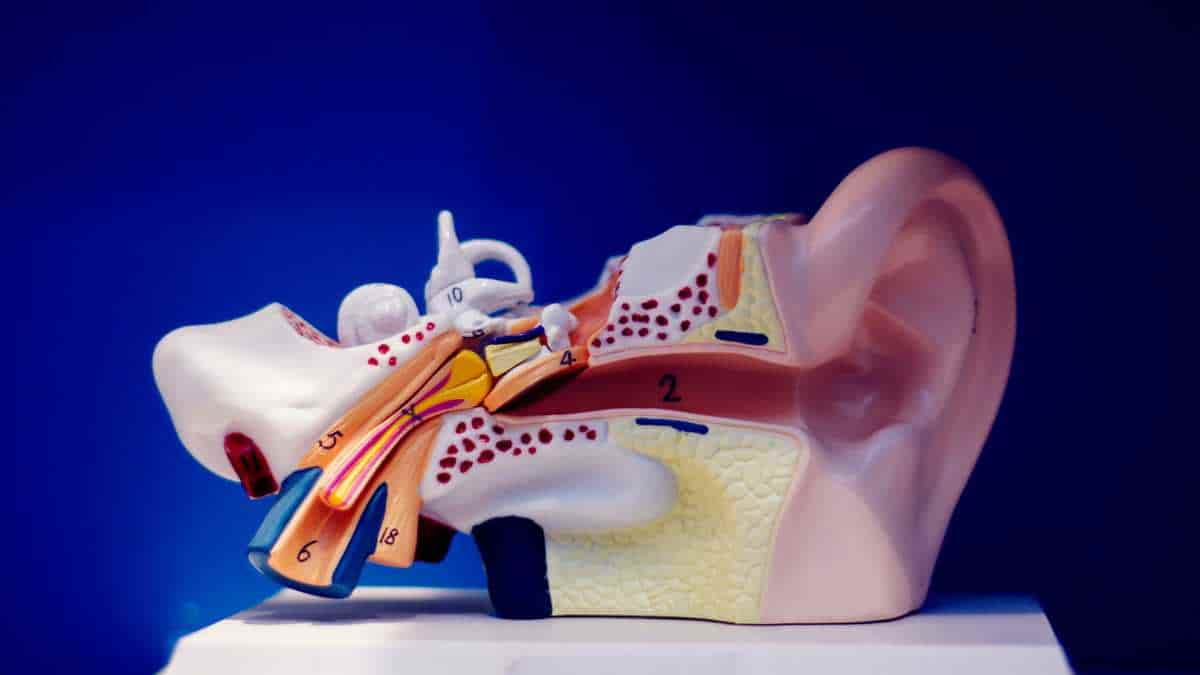According to a recent study from Massachusetts Eye and Ear, auditory nerve loss that is undetectable by standard hearing tests affects more than one in ten adults worldwide who report having tinnitus, which manifests as ringing in the ears.
The authors of this study are researchers affiliated with the Eaton-Peabody Laboratories (EPL), who are investigating cochlear synaptopathy, also known as “hidden hearing loss.” This research contributes to a greater comprehension of the etiology of tinnitus.
“Beyond the nuisance of having persistent ringing or other sounds in the ears, tinnitus symptoms are debilitating in many patients, causing sleep deprivation, social isolation, anxiety and depression, adversely affecting work performance, and reducing significantly their quality of life. We won’t be able to cure tinnitus until we fully understand the mechanisms underlying its genesis. This work is a first step toward our ultimate goal of silencing tinnitus,”
said senior author Stéphane F. Maison, Ph.D., CCC-A, clinical director of the Mass Eye and Ear Tinnitus Clinic.
Maladaptive Plasticity
A buzzing, humming, ringing, or even thundering sound is reported by many individuals with hearing loss. The hypothesis that these symptoms, referred to as tinnitus, result from maladaptive plasticity in the brain that has persisted for a considerable period of time.
In other words, the brain tries to compensate for the loss of hearing by increasing its activity, resulting in the perception of a phantom sound, tinnitus. Until recently, though, this idea was disputed as some tinnitus sufferers have normal hearing tests.
However, the discovery of cochlear synaptopathy back in 2009 by Mass Eye and Ear investigators brought back to life this hypothesis, as it was evidenced that patients with a normal hearing test can have a significant loss to the auditory nerve.
In light of this paradigm shift in how researchers and clinicians think about hearing loss, Maison and his colleagues set out to see if such hidden damage could be linked to the tinnitus symptoms experienced by a group of normal hearing participants.
Auditory Nerve Regeneration
By measuring the response of their auditory nerve and brainstem, the researchers found that chronic tinnitus was not only associated with a loss of auditory nerve but that participants showed hyperactivity in the brainstem.
“Our work reconciles the idea that tinnitus may be triggered by a loss of auditory nerve, including in people with normal hearing,”
said Maison.
In terms of future directions, the researchers hope to capitalize on recent work aimed at the regeneration of auditory nerves using drugs known as neurotrophins.
“The idea that one day, researchers might be able to bring back the missing sound to the brain, and perhaps, reduce its hyperactivity in conjunction with retraining, definitely brings the hope of a cure closer to reality,”
Maison added.
Abstract
Tinnitus, reduced sound-level tolerance, and difficulties hearing in noisy environments are the most common complaints associated with sensorineural hearing loss in adult populations. This study aims to clarify if cochlear neural degeneration estimated in a large pool of participants with normal audiograms is associated with self-report of tinnitus using a test battery probing the different stages of the auditory processing from hair cell responses to the auditory reflexes of the brainstem. Self-report of chronic tinnitus was significantly associated with (1) reduced cochlear nerve responses, (2) weaker middle-ear muscle reflexes, (3) stronger medial olivocochlear efferent reflexes and (4) hyperactivity in the central auditory pathways. These results support the model of tinnitus generation whereby decreased neural activity from a damaged cochlea can elicit hyperactivity from decreased inhibition in the central nervous system.
Reference:
- Vasilkov, V., Caswell-Midwinter, B., Zhao, Y. et al. Evidence of cochlear neural degeneration in normal-hearing subjects with tinnitus. Sci Rep 13, 19870 (2023). doi: 10.1038/s41598-023-46741-5
